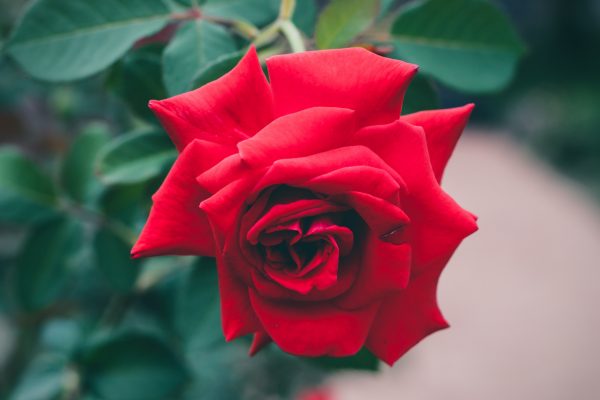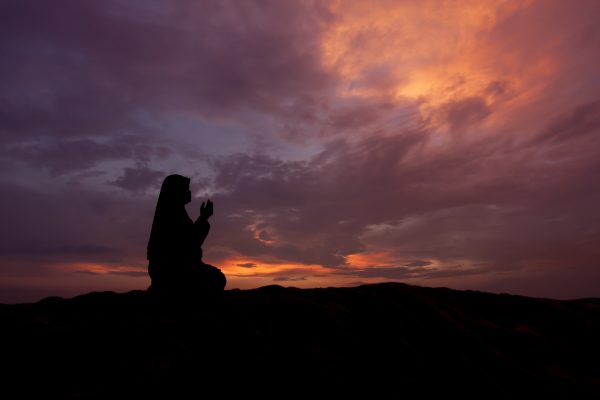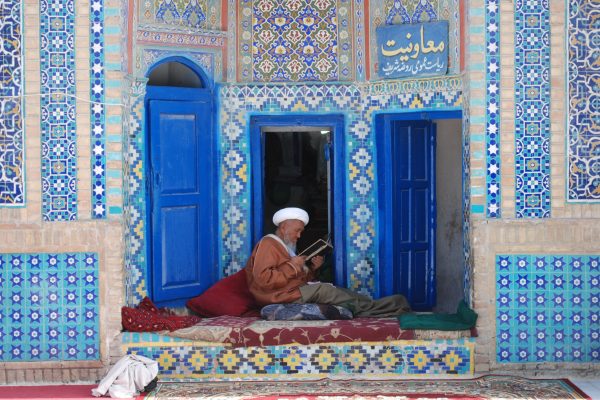How many of these important men and women do you know?
How many of these important men and women do you know?
There is a common misconception among Muslims that Bilal ibn Rabah was the only black Companion of the Prophet Muhammad ﷺ.
Black Muslims were highly admired in the early generations of the new faith in fact, however sadly, this did not last for long, as anti-black sentiment crept into Muslim thinking and literature.
In response to the negative representations of Africans which developed in medieval Arab-Muslim societies, several scholars wrote books to address the accusation that ‘Islam is an anti-black religion’ by highlighting the positive contributions of blackness in the Islamic tradition.
Al-Jahiz, Ibn al-Jawzi and Al-Suyuti from the ninth, twelve, and fifteenth centuries wrote influential books to address anti-blackness in Muslim societies. In my book, Illuminating the Darkness, I compiled short biographies of black men and women in Islamic history including the Prophet’s ﷺ Companions.
Below are 10 black and African Companions of the Prophet ﷺ to know:
Bilal ibn Rabaah
Bilal was a prominent and beloved companion of the Messenger of Allah ﷺ. Originally from Abyssinia, Bilal was the first muezzin of Islam and had the honour of performing the call of prayer in Mecca, Medina, and Jerusalem.
Bilal was described as being very dark in complexion, tall and thin with an aquiline nose. He was known for his strong faith and commitment to the Islamic faith. Whilst enslaved, Bilal refused to denounce his faith when prosecuted by the Quraysh. Upon seeing this, Abu Bakr freed him. Bilal became a prominent figure in the new Muslim community, in which the Messenger of Allah ﷺ informed Bilal that he heard his footsteps in Paradise.
Najashi (Negus)
Asham ibn Abjar an-Najashi, known as the Negus, was the King of Abyssinia in northeast Africa. Formerly a Christian, the Negus was a just and righteous ruler, according to the Prophet ﷺ.
The Negus allowed the Muslims to stay in his land despite the protests of the Meccans. He is reported to be the only person to receive the honour of having the Prophet ﷺ pray the funeral prayer for him whilst he was in a different land.
Usamah ibn Zayd
Usamah was the son of Zayd ibn Haritha, a beloved companion of the Prophet ﷺ, and Umm Ayman, the black African woman who raised the Messenger of Allah ﷺ. Resembling his African mother, Usamah was dark in complexion with a broad nose. He was adored by the Prophet ﷺ who treated him like a grandson.
At a young age, Usamah was made a general by the Prophet ﷺ to lead an army that included senior and prominent Companions. He was married by the Prophet ﷺ to Fatimah bint Qays, who was a light-skinned Arab from a noble tribe of Quraysh.
Julaybib
Julaybib was a black man from the Ansar who was ridiculed due to his physical appearance. He was described as being dark-skinned, short, and ugly without any family connections in Medina. Julaybib was very shy and would often sit in the company of the Prophet ﷺ. Julaybib struggled to get married as no family would permit their daughter to wed him.
The Prophet ﷺ, therefore, proceeded to find a wife for Julaybib. He went to the home of one of the Ansar to propose marriage on behalf of Julaybib. The young lady accepted the Prophet’s ﷺ proposal despite her parents’ displeasure. Shortly after the marriage, Julaybib was killed in a battle. When the Prophet ﷺ saw the body of Julaybib, he said, “This [man] is from me, and I am from him.” [Ibn Hibban]. The Prophet ﷺ personally placed him in the grave, indicating his status as a martyr.
Salim
Salim was a freed slave of Abu Hudhayfah. He was one of the most knowledgeable reciters of the Qur’an and he used to lead the Companions in prayer. The Companions used to marvel at the sweet voice of Salim when he recited the Qur’an. “I have not heard a voice like his not a recitation from any of your Companions,” one of the companions said.
It was reported that the Messenger of Allah ﷺ said, “Take the Qur’an from four people: from Abdullah ibn Mas’ud. Mu’adh, Ubayy and Salim the freed slave of Abu Hudhayfah.” [Hakim]. Salim was martyred in the battle of Yamamah after his arms were cut off. When Salim was martyred, Zayd ibn Thabit said, “A quarter of the Qur’an has gone.”
Muhja
Muhja was a black companion from Mecca who was the first Muslim to be martyred in the famous Battle of Badr. Muhja was an extremely pious man who worshipped Allah constantly. It was reported that the Prophet ﷺ said, “The leaders of black people are four: Luqman the Abyssinian, the Negus, Bilal ibn Rabah and Muhja.” [Tirmidhi].
It was reported that the following Qur’anic verses were revealed about Muhja: “Alim Lam Mim. Do people think they will be left alone after saying ‘We believe’ without being put to the test? We tested those who went before them: Allah will certainly mark out which ones are truthful and which are lying.” [Qur’an 29:1-3]. On that day, the Prophet ﷺ said, “The chief of the martyrs is Muhja, and he is the first of this community who will be called to the door of the Garden.” [Tafsir of al-Qurtubi].
Umm Ayman
Umm Ayman was a black African woman from Abyssinia whose name was Barakah. When Aminah, the mother of the Prophet ﷺ died, Umm Ayman took over as primary caregiver. Formerly a slave, the Prophet ﷺ freed Umm Ayman when he married Khadijah bint Khuwaylid. Umm Ayman remained steadfast in her belief and loyalty to the Prophet ﷺ. After the death of her first husband, the Prophet ﷺ said to his Companions, “Whoever wishes to marry a woman from the people of Paradise, let him marry Umm Ayman!” [Ibn Sa’d]. Upon hearing this, Zayd ibn Harithah married her.
The Prophet ﷺ was very fond of Umm Ayman, and he would jest with her from time to time. The Prophet ﷺ used to say about her, “Umm Ayman is my mother after my mother.” [Ibn Hajar]. It was reported that Umm Ayman was present at the wedding of Fatimah, the daughter of the Prophet ﷺ, and assisted with the ritual washing of her blessed body. Umm Ayman was beloved by the Prophet ﷺ and Ahl al-Bayt. After the Prophet’s ﷺ death, the Companions used to visit Umm Ayman just as the Messenger of Allah ﷺ used to visit her.
Umm Zufar
Umm Zufar was a female companion called Sa’irah al-Asadiyyah or Shaqirah. One day, Ibn Abbas said to his student, Ata ibn Rabah, “Should I not show you a woman from the people of Paradise?” “Certainly!” Ata replied. “That black woman over there; she went to the Prophet ﷺ and said, “I suffer from epileptic fits and uncover myself. Please pray to Allah for me.” He said, “If you want you can be patient and you will have the Paradise or if you want I can pray to Allah to cure you.” She said, “I will be patient.” Then she said, “I become uncovered, please pray for me that I do not uncover myself.” And so the Prophet ﷺ supplicated for her. [Bukhari].
Barirah
Barirah was a black woman from the Ansar. She was a female slave who was married to an enslaved black man called Mugith. The marriage was annulled following her emancipation as she wanted to separate. Mugith loved Barirah dearly and wanted her back. He would follow her in the streets of Medina with tears running down his beard. He was heartbroken but she no longer desired him.
Upon seeing Mugith’s intense love for Barirah, the Prophet ﷺ asked Barirah if she would consider taking him back. She declined, saying “I have no need of him.” The Prophet ﷺ accepted her decision. [Bukhari].
Umm Mihjan
Umm Mihjan was an elderly black woman who used to clean the mosque of the Prophet ﷺ in Medina. One day the Prophet ﷺ asked about Umm Mihjan’s whereabouts, in which he was informed that she died. The Prophet ﷺ became upset, saying “Why did you not inform me?!” He asked where she was buried, then went to pray over her. [Bukhari and Muslim]
For further details on the status and history of black and African Muslims, you can read my book Illuminating the Darkness: Blacks and African Muslims in Islam, which is available here.





